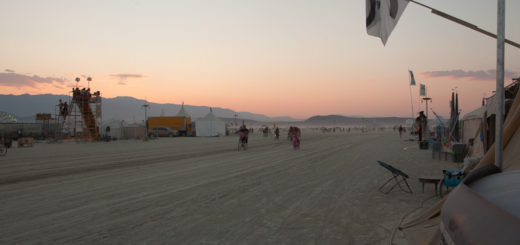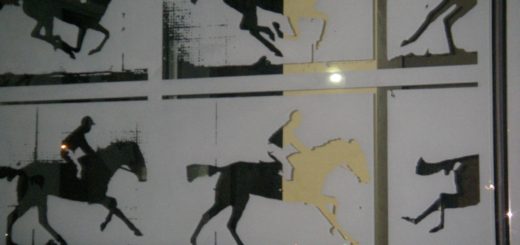THE DONUT KING
From our coverage of the 2020 Nashville Film Festival by Jason T Sparks
When you watch documentaries you learn things. Here’s a thing I learned from a documentary: within the city of Los Angeles, there are 5,000 independently-owned donut shops. That’s right, in this one city, there are five thousand places to get donuts. (Musical side note: I, like Mr. Doe and Ms. Cervenka, now wanna live in Los Angeles.)
That data, however, is only part of what I learned. Of those 5,000 donut shops, a staggering 90% of them (4,500) have one highly unusual thing in common: they are owned by immigrants. Well, that, on its face, is not strange; immigrants have been coming here and starting their own businesses since and before Ellis Island. What would be strange would be if the immigrant owners of those 4,500 donut shops were all, each and every one, immigrants from the same country. What would be stranger still, perhaps, would be if they were all from a country many Americans might not immediately think of as a primary source for immigrants.
You probably do, and don’t, see exactly where this is going.
Of the 5,000 donut shops in LA, 4,500 are owned by Cambodians. That’s not an accident—not entirely—and Alice Gu’s The Donut King sets out to tell us how this came to be. The title The Donut King suggests, of course, that there is A Donut King, an individual at the centre of this—historians may not love the Great Man theory anymore, but the history of LA donut shops definitely contains a Great Man. His name is Bun Tek Ngoy, aka Ted Ngoy. Ted, as we learn through the usual combination of archival footage and talking heads, started out in a very different career, in a different country. Ted Ngoy was, for a time, Major Ngoy, an officer in Cambodia’s army. His tenure with the military ended abruptly on April 15, 1975, when he and his family, with the help of an American pilot, were among the Cambodians lucky enough to escape the capital city of Phnom Penh before it fell to the Khmer Rouge. It’s at this juncture that we get an unusually timely history lesson about our own country, about the vast number of Cambodian refugees who were brought to America at the stern insistence of Gerald Ford (yes, Virginia, there was a Republican president who actually gave a damn about refugees.)
Ngoy and his family live at Camp Pendleton, an Army base in California, until his family is “adopted” by a family at a Lutheran church in nearby Tustin. He works as a janitor at the church, but also works nights at a gas station—a gas station not only close to a 24-hour donut shop, but downwind of same, meaning that Ngoy is entranced one fateful night by the smell of freshly baked donuts. Beyond the obvious appeal therein, Ngoy recounts how the smell (and taste of the dozen he bought minutes later) immediately reminded him of nom kong, a Cambodian pastry that is essentially a donut itself. To paraphrase Mario Puzo, in a novel about a very different (and fictional) immigrant who achieved a lot in America, every man has a destiny; the wistful glow in Ngoy’s face as he recounts the story tells us that he has met his. (Well, that, and the fact that this documentary about him is named The Donut King.)
Ted then recounts how the empire was built: at first, he was merely an employee of a donut shop, a bygone Los Angeles chain called Winchell’s Donuts. Within a year, he’s managing his own Winchell’s, turning an aggressive profit (a little too aggressive; the Winchell’s brass have to explain to him that while it does reduce costs, they really shouldn’t pull the used coffee stirrers out of the trash to be washed and re-used). Bear in mind, Ted Ngoy has only been in the US since 1975; by 1977, he owns his own donut shop, Christy’s Donuts (after Mrs. Ngoy, as frequent a talking head in this film as Ted himself). By 1979—four years since his arrival—there are twenty-five Christy’s Donuts in and around Los Angeles; by 1987, there are 32. Also by 1987, the Khmer Rouge have been ousted from Cambodia, which leads to another vast wave of Cambodian refugees, of whom a huge percentage flock to LA to learn the donut business from the man now known as “Uncle Ted.”
This middle third of the film, watching Ngoy’s rise, is a delightful rush, enhanced by archival footage and (because there isn’t actually a lot of archival footage) pop-culture references. We learn that Ngoy, seeking to differentiate his donuts from other brands served in white cardboard boxes, starts using pink boxes; when Ngoy tells this story, an image immediately fills my mind, and minutes later, the image is on screen—an image of Ving Rhames carrying a pink box of dounts, albeit briefly. It’s all very exhilarating, but you find yourself wondering: Usually, when a movie depicts a spectacular rise, isn’t there also a spectacular fall?
There is, unfortunately, and it’s all on Ted himself. Bored with success, Ngoy starts taking trips to Las Vegas, where he discovers gambling; rather, it discovers him then consumes him. He finds himself needing more and more money with which to gamble, ultimately going to the managers of some of his stores and making an unbelievable deal with them: They loan him money from the cash on hand, and if he loses it, that manager now owns his/her own store. Suffice to say, other Cambodians begin to own donut shops, and Ted begins to not own them. The Donut King took remarkably little time to become The Donut King, and even less time to stop being The Donut King.
Ted Ngoy’s story arc is, itself, disappointing; he divorces Christy, to whom he’s been married since Phnom Penh and is now completely out of the donut business. While he is no longer LA donut monarchy, the current donut kings (and queens) are still to this day 90% Cambodian, with the stores now in the hands of 3rd and 4th-generation Cambodian-Americans. Alice Gu pulls off a kind of misdirect here—we expect The Donut King to be about The Donut King, and while it is, it’s also an unflinching look at his shortcomings and at the empire/cottage industry/subculture he built that still exists. It’s a great story about American entrepreneurship, focusing on a subset that I, at least, had never heard of. A good doc is a window into a world we don’t know, and I cannot think of a way this window could have offered a more thorough view.
You can rent or buy The Donut King on Amazon Prime, Google Play and various other platforms.






















